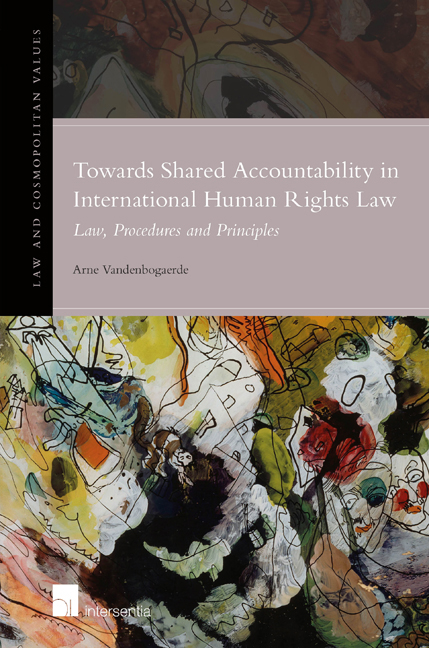
- Cited by 6
-
Cited byCrossref Citations
This Book has been cited by the following publications. This list is generated based on data provided by Crossref.
Heerdt, Daniela 2018. Tapping the potential of human rights provisions in mega-sporting events’ bidding and hosting agreements. The International Sports Law Journal, Vol. 17, Issue. 3-4, p. 170.
Barros, Ana Sofia 2019. Governance As Responsibility.
Johansen, Stian Øby 2020. The Human Rights Accountability Mechanisms of International Organizations.
Erdem Türkelli, Gamze 2020. Children's Rights and Business.
Pribytkova, Elena 2021. Extraterritorial Obligations in the United Nations System: U.N. Treaty-Based Bodies. SSRN Electronic Journal ,
Heller, Léo 2022. Os Direitos Humanos à Água e ao Saneamento.
- Publisher:
- Intersentia
- Online publication date:
- December 2017
- Print publication year:
- 2016
- Online ISBN:
- 9781780685670
- Series:
- Law & Cosmopolitan Values
- Subjects:
- Law, Human Rights


